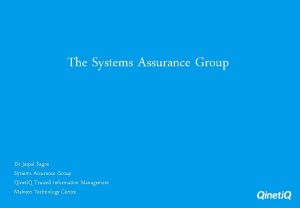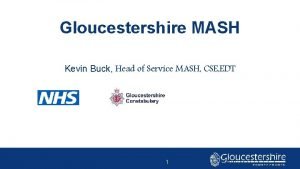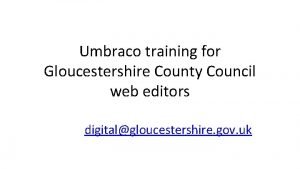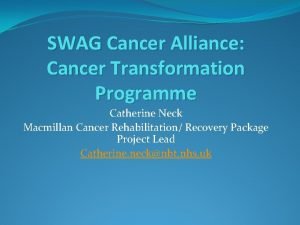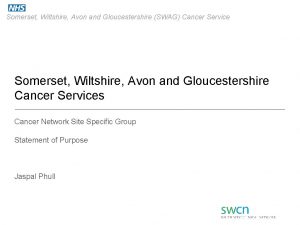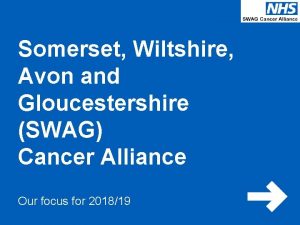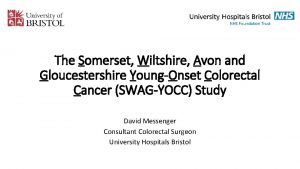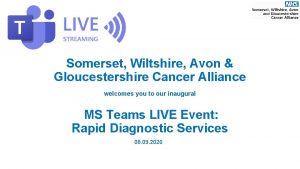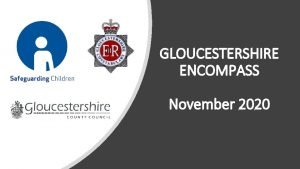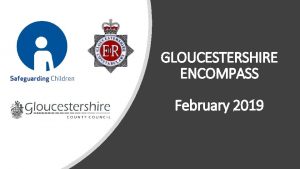Jaspal Phull Somerset Wiltshire Avon and Gloucestershire SWAG








- Slides: 8

Jaspal Phull Somerset, Wiltshire, Avon and Gloucestershire (SWAG) Cancer Service

Somerset, Wiltshire, Avon and Gloucestershire (SWAG) Cancer Service • Cancer Research UK goal - reach 75% people surviving their cancer for 10 y or more by 2034 • MDT considered the gold standard since introduced in 1995 • MDT may not have adapted to cope with increased demand • CRUK motivated to streamline MDTs to support the increased demand • Mean length of MDT discussion per case is 3. 2 minutes, meetings can last up to 5 hours • Surveys reported some patients could be discussed outside the full MDT Somerset, Wiltshire, Avon and Gloucestershire (SWAG) Cancer Service

Somerset, Wiltshire, Avon and Gloucestershire (SWAG) Cancer Service Recommendation 1 • Triage patients to follow protocols outside the full MDT • NICE and SIGN guidelines • CA or SCN should develop their own protocol based on central recommendations • Regular review

Somerset, Wiltshire, Avon and Gloucestershire (SWAG) Cancer Service Recommendation 2 • MDTs for protocolised approach tumour types could have a pre-MDT triage meeting • Implementing and auditing these should be within the MDT framework in an operational meeting

Somerset, Wiltshire, Avon and Gloucestershire (SWAG) Cancer Service Recommendation 3 • National requirements for individual minimum attendance should be reviewed and amended where necessary • Emphasis on requiring all specialties are present at the MDT meeting • NHSE should run a series of pilots to assess the optimal % attendance • National guidance changed based on these pilots

Somerset, Wiltshire, Avon and Gloucestershire (SWAG) Cancer Service Recommendation 4 • UK health services should develop national proforma templates • MDTs should require all incoming cases and referrals to have a completed proforma with all information ready before discussion Patient demographics Diagnostic information Fitness, co-morbidity, history of previous malignancy Results from a HNA Patient’s preferences if known Rationale for requiring MDT discussion Whethere are known protocols for the specific tumour site Whether the patient if suitable for relevant clinical trials • The MDT should have the power to bypass this requirement in exceptional circumstances

Somerset, Wiltshire, Avon and Gloucestershire (SWAG) Cancer Service Recommendation 5 • MDTs should use a database or proforma to enable documentation of recommendation in real time • Otherwise a named clinician to review all outcomes • Hospital Trusts should ensure that MDTs are given sufficient resource to do this

Somerset, Wiltshire, Avon and Gloucestershire (SWAG) Cancer Service Recommendation 6 • Each MDT should ensure that they have mortality and morbidity process to ensure all adverse outcomes can be discussed • These discussions by the whole MDT to support learning • Recommended this takes place quarterly or biannually in an operational meeting • Time for this should be within job plans • Oversight from national MDT oversight programmes
